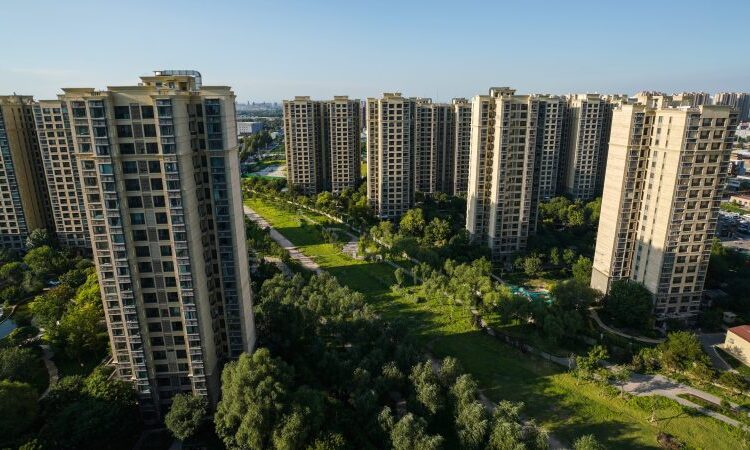
China’s economic slowdown could help reduce inflation in Europe, while economic loss felt by EU companies due to reduced exports would likely be felt anyway as China pivots towards more self-reliance, economist Alicia García-Herrero told EURACTIV in an interview.
While, towards the end of 2022, many economists expected China’s economy to come back to a strong growth trajectory this year as the Chinese Communist Party (CCP) ditched its “Zero Covid” policy, the signs from China now point to a much weaker economy.
Disappointing growth numbers in the second quarter of 2023 have led many analysts to readjust their growth expectations downwards. Moreover, the announcement that China would no longer publish its youth unemployment data did not help to foster confidence in the Chinese economy.
The underlying reason for the slowdown is a bloated and over-leveraged real estate sector that plays an outsized role in the Chinese economy.
However, according to Alicia García-Herrero, chief economist for Asia Pacific at the investment bank Natixis and senior fellow at the Brussels thinktank Bruegel, “the real estate bubble is a consequence of other problems that the Chinese economy has, it didn’t come out of nothing.”
For example, the Chinese have to save a lot of money in order to save for their pensions since public pensions are very low and the private pensions market is very limited. These savings suppress interest rates, which then lead to overinvestment, García-Herrero told EURACTIV in an interview.
Further, in a state-driven model, this investment does not necessarily go towards the most productive sectors – leading to a misallocation of resources.
The need to save money also means that consumption cannot work as a growth engine for the economy, according to García-Herrero, who predicts a long and protracted era of slow growth, similar to the problems faced by Japan after its boom years.
“The adjustment mechanism is not like a big crisis, but rather deflationary pressures and a protracted reduction in fixed asset investment,” she said.
The slowdown could stretch over a long time, especially since Chinese policymakers seem unable to react. “By now we realise that China is in a policy paralysis mode,” García-Herrero said.
EU dimension
But for the EU economy, the Chinese slowdown might be a good sign.
“Because of the absorption of the real estate bubble, China is creating deflation on producer prices,” García-Herrero said, arguing that this would benefit EU importers. Additionally, less activity in China’s huge real estate sector could also reduce global demand and thus prices of upstream materials like iron ore.
The decreasing prices would help the EU tackle the bout of supply-driven inflation it experienced over the past two years.
Of course, there’s also a negative side to this.
“China is growing less than expected and therefore China is importing less than expected,” García-Herrero said. However, she countered that for her this is less relevant – since Chinese imports from the EU were likely to decrease anyway due to its self-reliance strategy.
“We were bound to lose this export market, no matter what, in my view,” she concluded.







